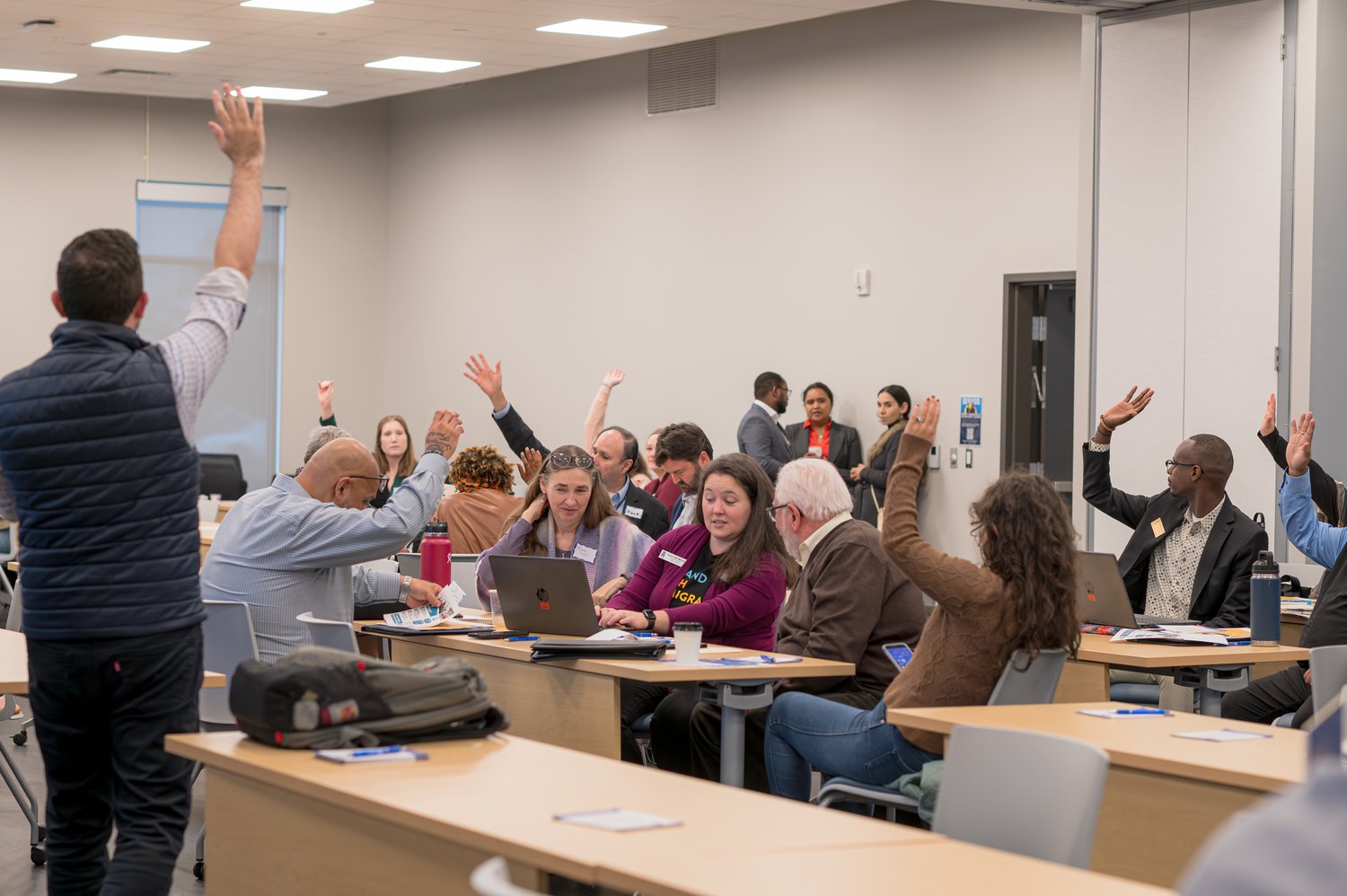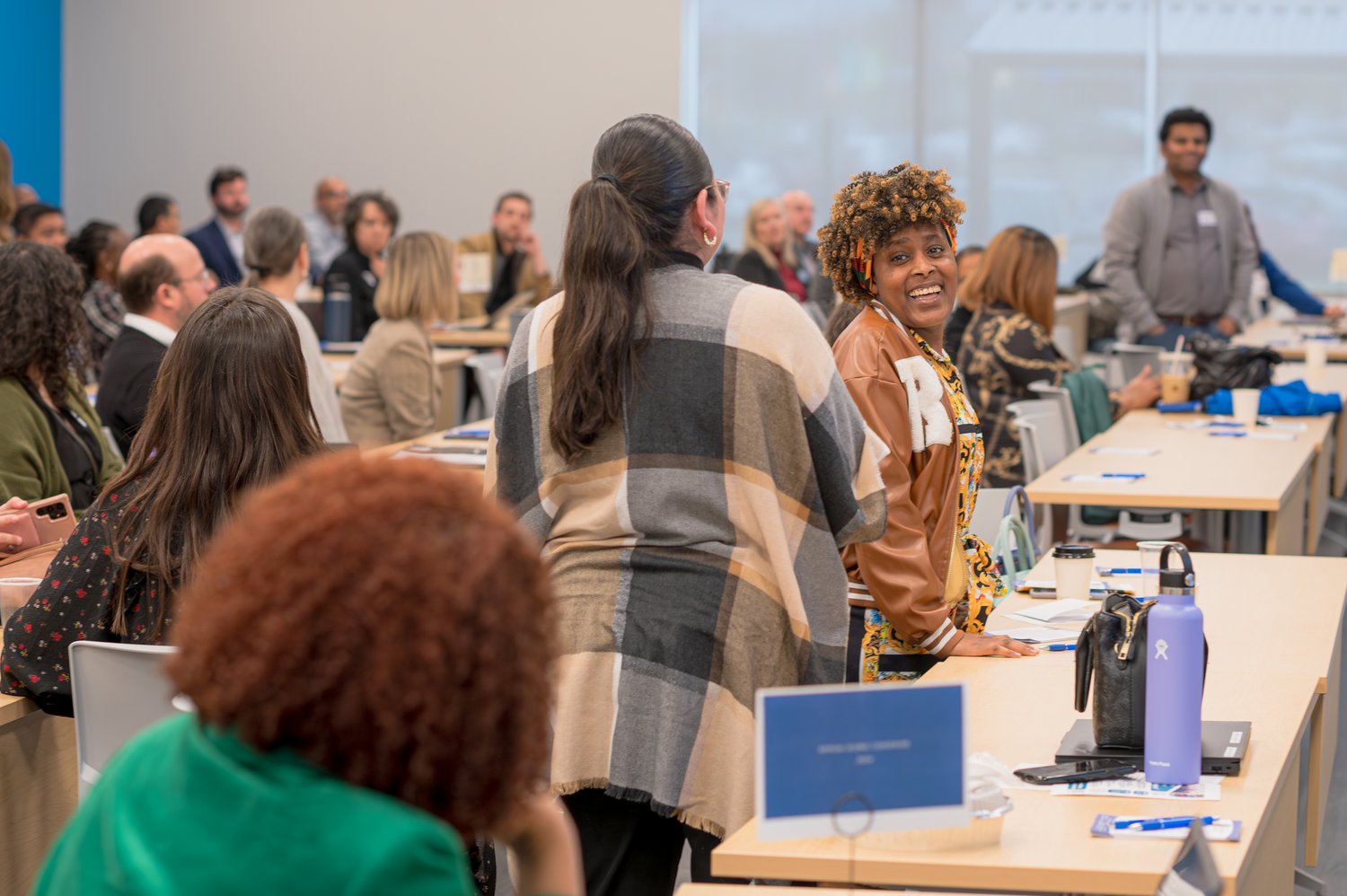
Workers who settled in the US as refugees face barriers to high-quality workforce opportunities. They’re often forced to accept low-quality jobs with risks to their physical safety, which limits their upward mobility.
Knowingly or unknowingly, employers can perpetuate these barriers through practices like relying on staffing agencies to source refugee personnel for frontline roles. This practice unnecessarily complicates the career navigation process for foreign-born workers because it limits employers’ and refugee workers’ ability to build an a common understanding of each other’s strengths and needs.
Insights into how employer practices affect refugee workers could advance inclusive workforce strategies. But the refugee-supporting organizations that could both voice these concerns and translate the needs of employers in their communities are seldom invited to build connections with employers in strategic, institutional, and sector-based workforce development conversations that take place within chambers of commerce and economic development partnerships.
KentuckianaWorks is one such refugee-supporting organization. It serves as the Louisville region’s workforce development board, with the mission of helping job seekers in the seven-county region find jobs, education, and training. It aimed to change the trajectory of refugee workforce practices in the region using a grant from the Gates Foundation via the Urban Institute.
This post uses KentuckianaWorks’s experience (PDF) to offer employers, local governments, and community members techniques for fostering mutual understanding with refugees and ultimately motivating the collective action needed to help more refugee workers access long-term economic mobility.

Building and convening a coalition of employers, refugees, and supporting organizations
KentuckianaWorks aspired to draw ethnic community-based organizations representing refugees into workforce development activities in the region. To achieve this goal, it set out to accelerate existing efforts to build a diverse coalition that includes refugees, employers, resettlement agencies, government, and ethnic community-based organizations so they can understand how their agendas align and develop recommendations for employers interested in advancing refugee hires.
They hosted three meetings to build awareness of refugees’ hiring and retention challenges and strategies for better supporting their success, including through stronger relationships between employers, service providers, and refugee advocates.

Greater Art Solutions
Balancing the power dynamic between employers and refugee workers
KentuckianaWorks took a distinctive approach during meetings that enabled substantial progress in fostering mutual understanding between groups and that created the conditions necessary for work to continue beyond the grant period. Most importantly, the group used various techniques to level the power dynamicbetween employers and refugees advocates. Other organizations in similar situations can benefit from incorporating their strategies:
- Select a lead facilitator who is an immigrant with immigrant parents. Having a facilitator refugees can relate to can help foster a sense of trust.
- Conduct intentional outreach to refugee-serving organizations, emphasizing that you’re looking for refugees who are working and those looking for work.
- Offer compensation for participants who would attend but are reluctant to miss work.
- Craft interactive sessions with a mix of refugees, employers, and other community leaders, and use prompts that seek input from all participants. This helps establish refugees’ co-ownership of the highest-priority needs.
- Avoid asking employers to bring their refugee staff. Workers may not feel comfortable being open about their challenges in front of their employer.
- Offer separate employer and worker panels to balance workers’ interests and employers’ input.
- Allow for direct engagement between refugees and employers by limiting the number of representatives from refugee-serving agencies in the room. Though their insights are helpful, it’s important to elevate refugees’ firsthand experiences.
- Have separate staff cover technology and facilitation so you can focus on your role as host and create a welcoming environment, especially for anyone unfamiliar with workshops and similar gatherings.
Through this process, KentuckianaWorks cocreated a refugee career navigation handbook with meeting participants and prioritized plans to develop several additional desired resources for employers and other community stakeholders.
Together these strategies can help other local leaders create the inclusive, productive spaces necessary to connect refugees with high-quality job opportunities.
Let’s build a future where everyone, everywhere has the opportunity and power to thrive
Urban is more determined than ever to partner with changemakers to unlock opportunities that give people across the country a fair shot at reaching their fullest potential. Invest in Urban to power this type of work.